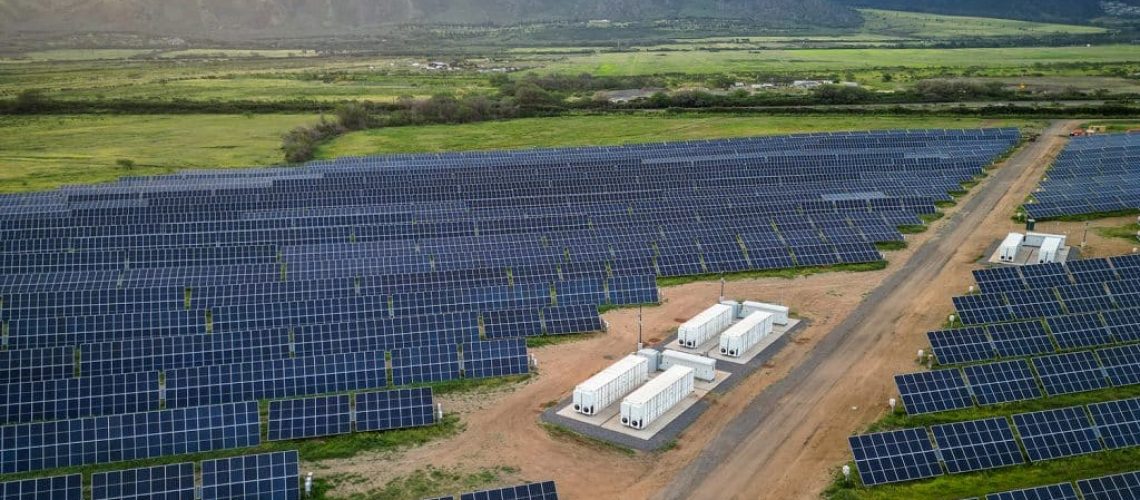The 60 MW Kūihelani solar-plus-storage facility will generate enough electricity for 27,000 homes, with a 240 MWh battery energy storage system.
Hawaii has the highest average electricity price of any state at 43.93 cents per kWh, nearly triple the U.S. average, yet this project will cut that cost for many residents. Developer AES Hawaii projects that the Kūihelani Solar-plus-Storage facility will generate enough electricity for 15% of Maui’s needs at just 8 cents per kWh.
“Maui residents will soon be seeing the benefit of Kuihelani in their electric bills and the reassurance of knowing they will have reliable electrical power for their homes and businesses,” said Maui Mayor Victorino.
Islands that are not covering their energy needs with renewables are beholden to imported fossil fuels. The energy generated by this facility will offset the need to import an estimated 2 million barrels of oil.
Situated on 450 acres in central Maui, between Kūihelani Highway and Maui Veterans Highway, the project supports the state’s goal of 100% renewable energy and decarbonization targets by 2045. AES Hawaii broke ground for construction less than two years ago, and as with most large-scale solar projects, the company sought input from the community prior to construction. As a result, AES Hawaii modified its plans.
“We reduced the size of the project site by 35%, minimizing the project’s environmental footprint, while maximizing the usage of the available land in a responsible manner,” said Sandra Larsen, Hawaii market business leader for AES.
Hawaiian Electric is the offtaker of the electricity, having signed a 25-year power purchase agreement with AES Hawaii.
Nearly 300 jobs were supported during construction of Kūihelani Solar-plus-Storage and and generated approximately $68 million for Maui’s economy, according to AES Hawaii. In addition, project area is also designed for agricultural use.
AES Hawaii more than 300 MW of renewable energy in construction or operational, enough to power 120,000 homes statewide. The company estimates that this is the equivalent of eliminating more than 175,000 metric tons of carbon emissions and more than 15 million barrels of oil consumption over the course of project lifecycles.



